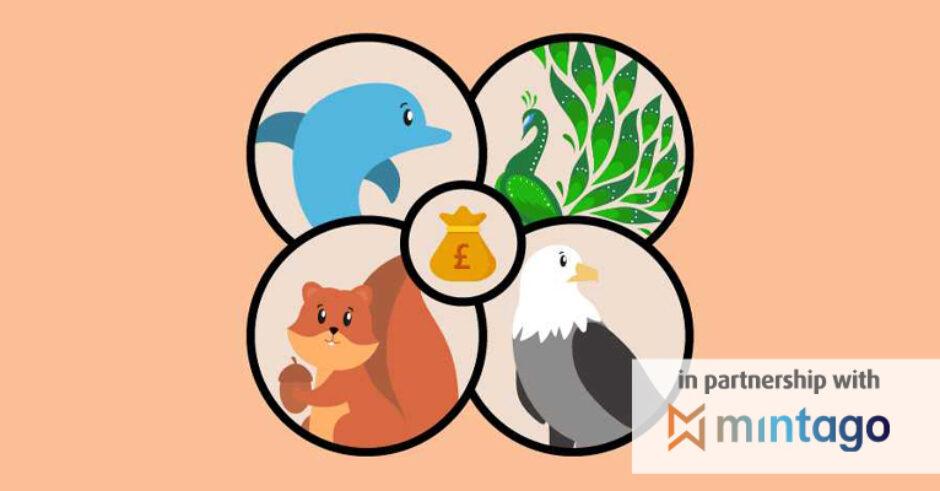Are you a decision-maker at work? Did you know that your money personality is a great indicator of your approach to employee wellbeing?
Having a healthy team – mentally, physically and financially – is critical to the wellbeing of your employees and the sustainability of your business.
Knowing your money personality is a really good way to help you understand what money means to you and how your personal values play a role in decision-making when it comes to our finances. Interestingly, it can also show your approach to employee wellbeing especially as a decision-maker at work.
We can take a further look into the four main money personality types specifically in the context of what your persona means for workplace wellbeing. We also give you some helpful tips on what you can do to improve your wellbeing strategies, depending on what type of person you are. As you read through, you may find that characteristics from multiple personality types resonate with you. We are complex creatures, and the same approach has to be taken when it comes to devising a successful employee wellbeing strategy: one size certainly does not fit all.
The Peacock
To you, money is status. A good measure of what people have achieved in their life is the amount they earn and what items they have.

You don’t doubt the value of employee wellbeing, so you are happy to put the funds there. You follow the tech giants’ model when it comes to delivering the perks and are more than happy to try the latest innovations. You may find that you already have plenty of wellbeing initiatives in place, but are they the right ones?
Unlimited holidays and discounted fitness classes might look great on paper, but think about the value that it’s bringing. The challenge is that everyone is different – identify and appreciate the demographic of your team to implement the best wellbeing strategy that is going to give optimum employee satisfaction. Take time to think about if your wellbeing solutions are really addressing the mental, physical and financial needs of your workforce.
The Eagle
To you, money means freedom. The ability to stand on your own two feet, you see money as something that helps you do the things you love.
Freedom and trust are likely to be just as important to your workforce as they are to you. Implement a flexible working strategy so that employees feel more fulfilled and empowered to work when they are most productive. Providing access to an unbiased financial wellbeing plan will also ensure your employees have access to the right information, that is tailored to them and their circumstances.
As a free spirit, you may neglect the value of data – ensure that you are conducting employee surveys and collating feedback regularly.
Ensure that your employees have the time to do the things they love and provide them with the resources they need to do so. Since you are naturally curious yourself, investing in training and development is a great way to motivate employees too.
The Dolphin
To you, money is love. A way of showing your affection and gaining emotional closeness with others. This may be through buying gifts or organising parties for friends and family.
Devising an efficient wellbeing strategy can seem overwhelming – naturally you would gravitate towards generous bonuses as a token of appreciation. Over time, your generosity might change expectations and be difficult to maintain if you encounter unexpected challenges or decide to scale your business.
To maximise your output, clearly communicate workplace structures and boundaries with your employees so you can always present your best self without getting overwhelmed. Being productive also means knowing when to take time out to charge your own batteries. It’s important to be a role model and set the precedent for your employees. You may find that you already have a number of workplace benefits in place, but take some time to review these to ensure that they are meeting your employees needs and you are getting optimal return on your investment.
The Squirrel
To you, money is security. You see the importance in being prepared for the unexpected and having savings for that rainy day.
You’ve got it sussed when it comes to savings and being prepared, so provide your team with the tools to do the same, in terms of their own personal budgeting and forecasting. Don’t be afraid to roll out new, innovative workplace benefit solutions, such as online mental health support and on demand fitness classes. Our world is changing rapidly, so make sure you have a benefit strategy that meets the evolving needs of your workforce.
Your employees will be more motivated and confident if you’re all working towards the same goal and communication is key with keeping them up to date on how the business is performing. Naturally you are cautious, however it is important to actively listen to your employees’ concerns and encourage change for the better so that the environment isn’t built on fear.
SUMMARY
Being self-aware is an important part of our journey to wellness both on a personal and professional level. It’s a learning process and you might even find you want to adopt some traits to enable you to become a little bit more of a squirrel or an eagle.
The pandemic has highlighted the importance of wellbeing in all its different forms. Now with rapidly evolving workplace structures, environments and expectations – having the right employee benefits package to match is even more critical.
Don’t forget if you haven’t taken the test, you can do so HERE.
The Business Transformation Network has shared this article in partnership with Mintago.




